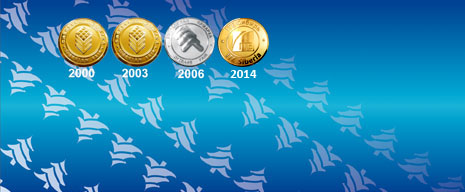 |
 |
No. 2 (2018)
Learning to Read Globally in the Primary School for the «English-Focus 2–4» Training and Methodological Complex
This article is devoted to the comparison of the existing methods of teaching primary school students to read in English. There are 2 widespread methods — a traditional one (when students learn the rules of reading) and the whole-word one (when students read words as a whole unit). The article states the advantages and disadvantages of these methods, concentrating on the psychological characteristics of primary school students. The author comes to the conclusion, that the only right way is to combine these methods, as it was done in Spotlight 2–4.
Some of the Learning Strategies that Empower Teaching English with Letterland
The article focuses on the original technology of the author that can empower teaching English with Letterland. For many years educators in English-speaking countries rejected traditional teaching of phonics, believing that because English spelling is so irregular, to give priority to teaching letter sounds was too difficult and confusing. It required too much rote learning, it was unpopular and boring for 5–7 year-olds, and worse, it gave them a distaste for reading.
Educational Technological Environ as a Factor of Formation in the Professional Self-identification of Students
Educational technological environ is identified in the article as an aggregate of organizational pedagogical conditions and mechanisms of school evolvement and self-evolvement as an object of studying and practice and as a factor of formation in the professional self-identification of students. Professional self-identification of a student is considered, in its turn, as a factor of personality’s evolvement, and the student — as a subject with own living and professional plans, in terms of analysis about his or her own real opportunities and being in demand on the labor-market.
Language Development of a Student in a Modern day Classroom: Methodology and Practice
This article is a methodological/theoretical review of the concept of ‘true communication of what the world needs nowadays’ and manifestation of the participants’ motivation towards communication in the educational process of the language classrooms/classes.
Actual Directions of Primary General Education Development
Primary school is the most important stage in the life of every child, the period when there is a change of leadership, the development of a new social role and the formation of functional literacy in all the leading areas of personal development. This level of education is traditionally a platform for various pedagogical experiments, testing of normative documents and guidelines. Not an exception was the period of standardization of Russian education, the start of which was testing, and then the introduction of the Federal state educational standard of primary education (fgos).
Criteria for Assessing the Quality of Primary General Education
This article discusses the main approaches to the development of quality criteria for primary General education.
Professional Mobility of a Teacher Facilitator in the Modern Sociocultural Context
Phenomenon of professional mobility of the teacher facilitator against the background of the requirements of the professional standard “Specialist in the field of education” is considered. An applicability of the investigation of the professional mobility of the teacher facilitator is stressed due to the purpose modification of occupational characteristics, change of the social demand on the professional competences.
Education Organization Experience with the use of Robotic Facilities in the Educational Systems of Europe, USA and Russia
Analytical data of the use of educational robotic facility in the different countries of the world are given, characteristics of robotic platforms are offered, a practical model of such platform to be used in the process of education during extracurricular activity is given. The experience of teaching informatics in South Korea is considered in details, as the content lines of South Korean course of informatics for juniors and secondary school matches a lot content lines of informatics course in Russia.
The Individualization of the Educational Process as Means of Forming and Developing Students’ key Competences
The education should become more individualized, functional and efficient. This task is solved through the individualization of the process, when a teacher and a student become equal subjects of education. The main aim of education in the sphere of teaching foreign languages in a special or professional direction supposes the development of professionally oriented intercultural communicative competences of students. The author also considers communicative foreign language competences, as well as socio-cultural, professional, educational, methodical and other competences.
The Current Level and Prospects for the Development of the Professional Orientation of Future Teachers
The article considers the problem of evaluation and development of the professional orientation of future teachers. The problem becomes especially urgent in the conditions of reforming pedagogical education and, connected with it, necessity to increase the focus of future teachers on pedagogical activity. At the same time, statistics show a low level of professional orientation.
Сайт поддерживается в Новосибирском институте повышения квалификации и переподготовки работников образования и является участником Новосибирской открытой образовательной сети
